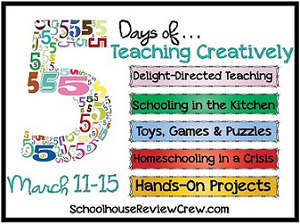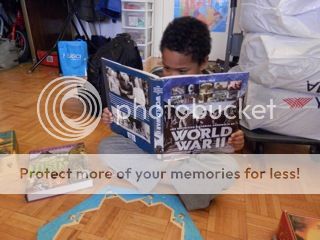 I am not the most creative person
there is. As a homeschooling mom this fact has been my pet-peeve, as I often associated
being a good homeschooling mom as being able to be innovative in the way I teach.
To some degree, I still feel that
way but I have come to terms to the kind of person I am and try to make the most of
it.
I am not the most creative person
there is. As a homeschooling mom this fact has been my pet-peeve, as I often associated
being a good homeschooling mom as being able to be innovative in the way I teach.
To some degree, I still feel that
way but I have come to terms to the kind of person I am and try to make the most of
it.
I like to think that homeschooling
is not so much "doing school at home" (though that is what I tell the
boys), but "home educating". What is the difference you might ask? Well, when I think of school I think rigidity, mold and pattern. When I think homeschooling
I think flexibility, innovation, out of the box.
That is not to say that there
are no constraints to homeschooling, because there surely are if you want your kids
to be truly educated. They have to know how to read, write, count, do algebra, have
a good vocabulary, know science, history, geography and if possible foreign languages, but all of this gets to be taught in a familiar, safe and inviting environment.
The idea of teaching creatively is really the idea of finding ways that best
suit your students and allow them to grow and learn in a non-threatening
environment and in a context where they can go beyond and to the fullest of
their abilities and interest.
The first aspect of teaching
creatively we would like to look at this week, as part of the quarterly TOS Crew
blog hop, is the idea of delight-directed learning.
First off what do we mean by delight-directed learning?
One thing it does not mean is every study as being fun learning. Delight here does not necessarily equate fun. What we are talking about here is learning where the child is led, encouraged and assisted in the pursue of his interests. Delight here means taking pleasure and enjoyment, being enrapture in the study of something. This is one of the top reasons why I Homeschool. My eldest from a young age tended to have strong interests and I would try to feed them to the best I could. I saw in homeschooling the chance and flexibility to do that better than being in school where most of your time is taken doing what the school board says you need to do and learn. With homeschooling one can really dig to the fullest into topics that fascinate or intrigue him. This is such a blessing!How? Here are a few ways:
- You go on field trips to explore those interest as much as you'd like.
- You can read all day about it. I have this thing where anytime the boys seem to be interested in something, I go and get as many books as I can on the topic from the library. I believe that is why they learned how to read early and on their own. I must have read all the books on trains and then on trucks and emergency vehicles that were in our library when they were young.
- You can do projects on the topics where you can even include others school subjects like math, history, science, vocabulary etc.. These are known as unit studies.
- Allow for free time for exploration and creativity.
Delight-directed homescholing can take as many forms as there are students and teachers, but the main goal and tenet would be making sure it takes advantage of the child's interests in some form.
 Zach for example is a history fanatic. He reads history encyclopedias for fun. He spends
lots of time imagining historical events both factual and fictional (he is the
boy so lots of it is battle related). More recently, my son, who does not like
writing has been writing essays on history. He has been acting as president and
come up with bills to approved and veto himself.
Zach for example is a history fanatic. He reads history encyclopedias for fun. He spends
lots of time imagining historical events both factual and fictional (he is the
boy so lots of it is battle related). More recently, my son, who does not like
writing has been writing essays on history. He has been acting as president and
come up with bills to approved and veto himself.
In the case of my youngest he loves
chess and last year spent a lot of time reading books on it and developing his
critical thinking through chess games.
Delight-directed
homeschooling does not mean that is all you do, but homeschooling gives you the
chance and freedom to determine time for such enterprise. We run a relaxed/classical
type homeschool in our home, which means that there are
things that MUST be done, but the boys also get lots of time to explore what they
like and be creative.
To conclude, I would say the
reason why I believe it is so important to allow for delight - directed learning is
because it develops, fosters and encourages a love of learning in a more
meaningful way that no other method does, and THAT is the goal of education.
"A delight-directed study is like a wonderful fire in the mind of a student. It starts small, but as it grows, it begins to consume vast amounts of information until it bursts into a roaring blaze of insight, understanding and creativity. It takes on a life of its own." From The Christian Home School by Gregg Harris:


Comments